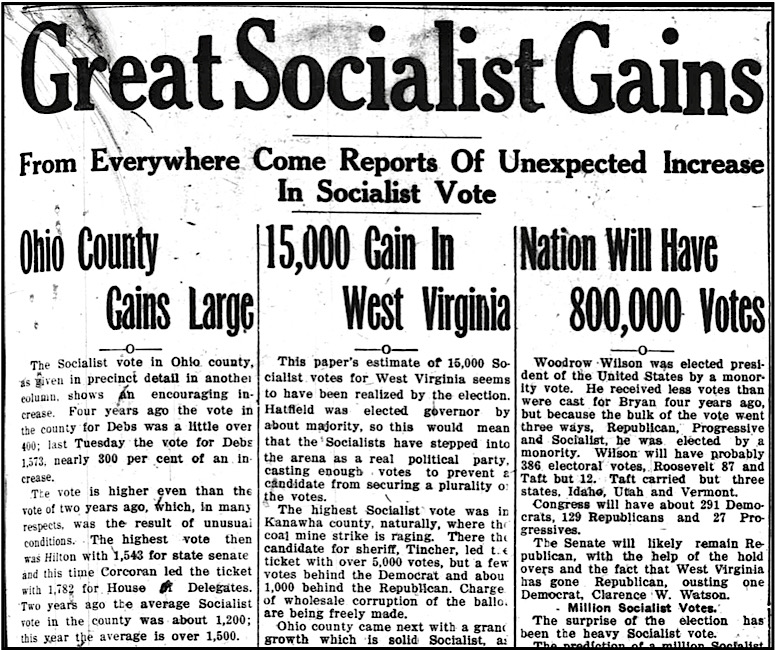 —————
—————
Hellraisers Journal – Friday January 3, 1913
Cabin Creek, West Virginia – Miners’ Victorious, Is Report from Strike Zone
From the International Socialist Review of January 1913:
THE CABIN CREEK VICTORY
By JAMES MORTON
Photographs by Paul Thompson.
[Part I of II]
THERE is rejoicing after many months in the Kanawha district in West Virginia. In spite of the subserviency of the Big Bull Moose governor to the interests of the coal barons, in spite of the steady flux of scabs into the coal district, the plutocracy has gone down to ignominious defeat before the splendid solidarity shown by the striking miners.
Twice the REVIEW has attempted to give its readers word pictures of the terrible brutalities of the thugs that have faithfully served the interests of the mine owners. But words fail to convey any idea of the conditions in the Kanawha district.
More than once the women and children were openly attacked and an attempt made to drive them off company grounds and into the river. It was thought such methods would drive the men into overt acts that would justify the soldiers in shooting down the rebels. And the miners did not sit down tamely and permit their wives and children to be murdered before their eyes. In some instances, it is reported, they started a little excitement all their own so that the troops might be drawn off to protect the property of their masters. We have even read that some mine guards mysteriously disappeared.
Then, with wonderful dispatch, tents began to appear and were flung up in nearby vacant lots and the miners and their families settled down in grim determination to “stick it out” and win. They say that many women were provided with guns in order to protect themselves and their children from the armed thugs that came to molest them.
Every train brought hosts of scabs and again recently martial law was declared. The troops were on hand to protect the scabs and incidentally to see that they remained at work. But the rosy promises of soft berths made to the scabs failed to materialize. They found coal mining anything but the pleasant pastime they had expected. They found they were required to dig coal and work long hours for low pay, and one by one, as the opportunity arose, they silently faded away for greener fields and pastures new.
The miners showed no signs of yielding. In spite of low rations constant intimidation and cold weather the strikers gathered in groups to discuss Socialism and plans for holding out for the surrender of the bosses. During the fall election the miners voted the Socialist party ticket almost unanimously. The strike brought home to these men the truth of the class struggle in all its hideousness.
And the scabs came and went. Individually and collectively they struck by shaking the dust of the Kanawha district from their feet. Probably the mine owners discovered that it would cost a great deal more for a much smaller output of coal than it would to yield all the demands of the strikers.
It is reported that the men are to go back after having secured a nine-hour workday and a 20 per cent increase in wages.

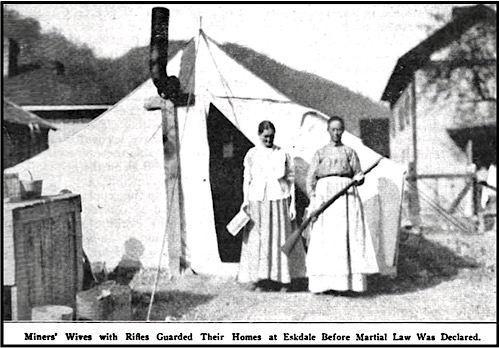
 —————
—————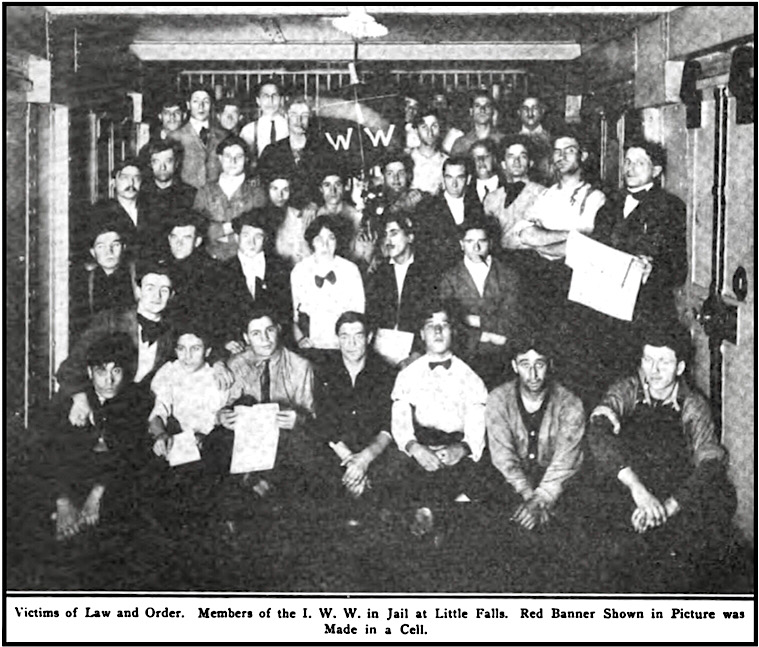
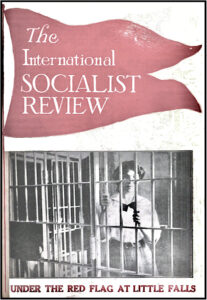
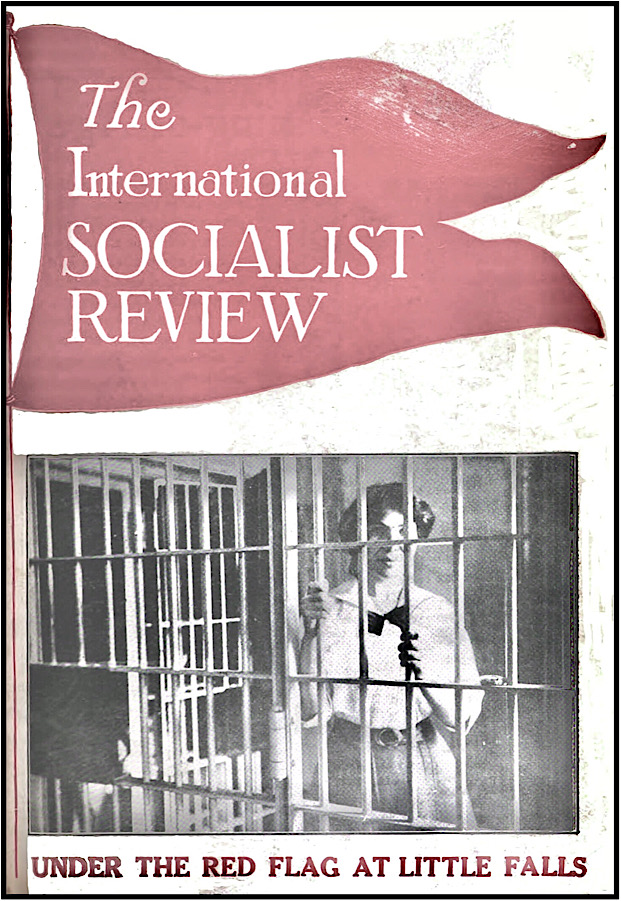
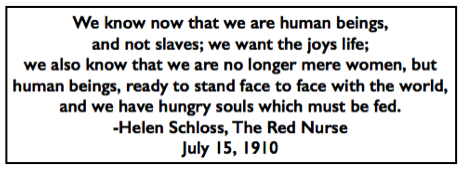 —————
—————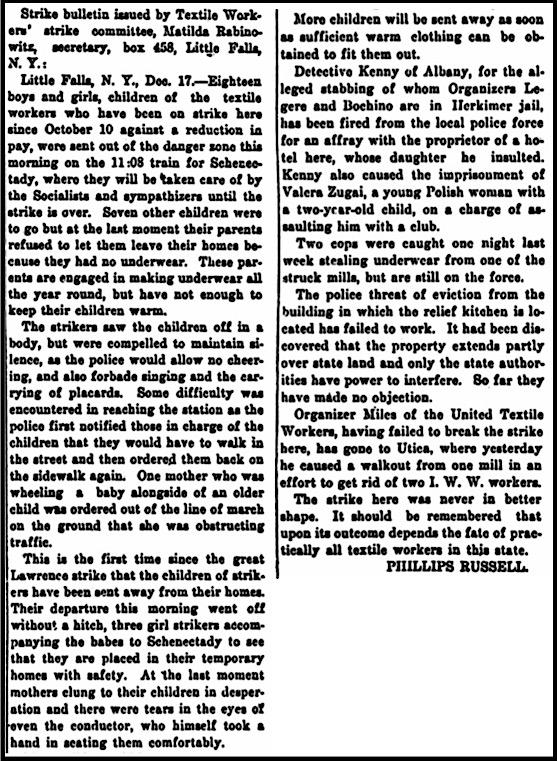
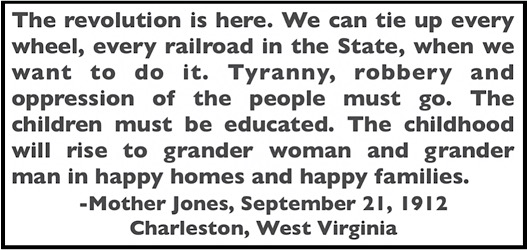 —————
—————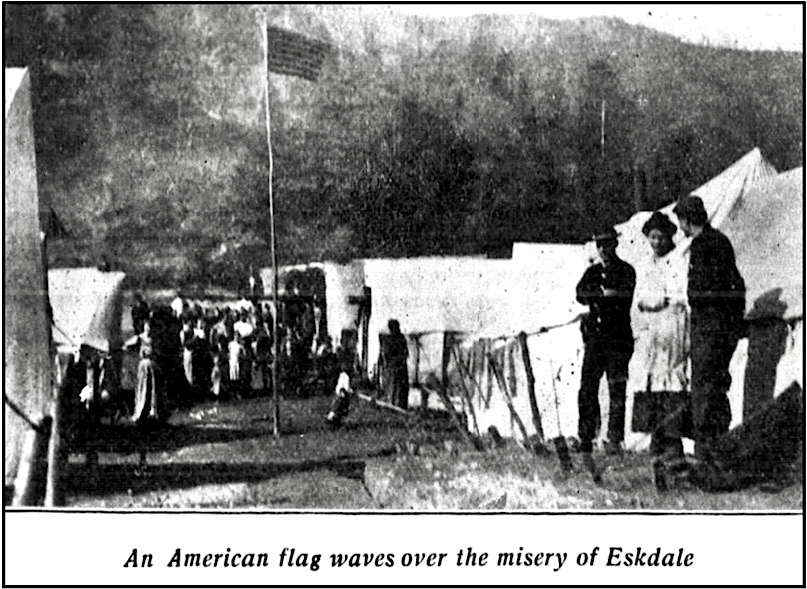
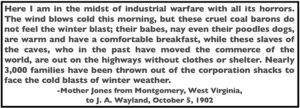 —————
—————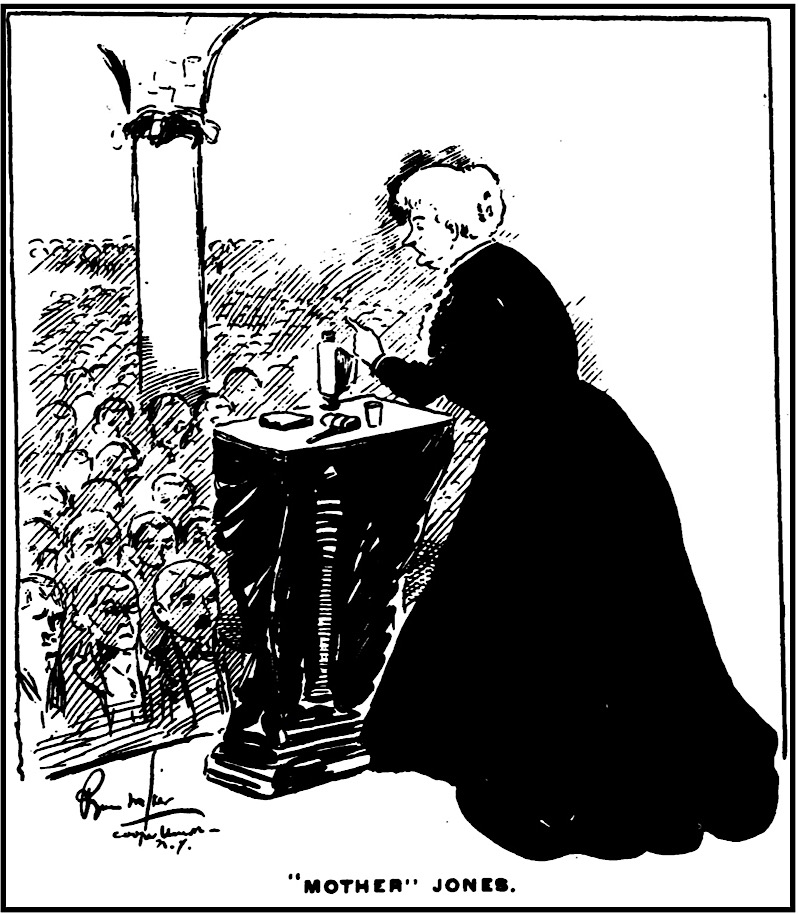
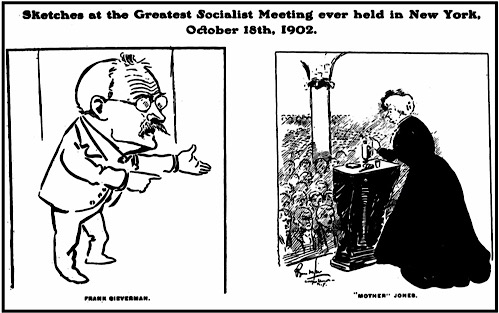 Frank Sieverman and Mother Jones
Frank Sieverman and Mother Jones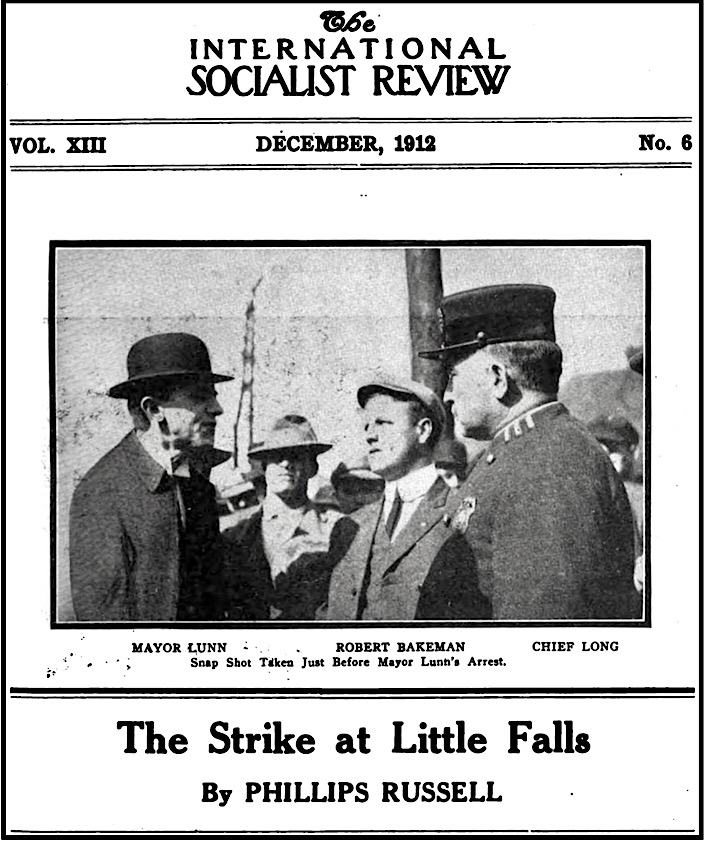
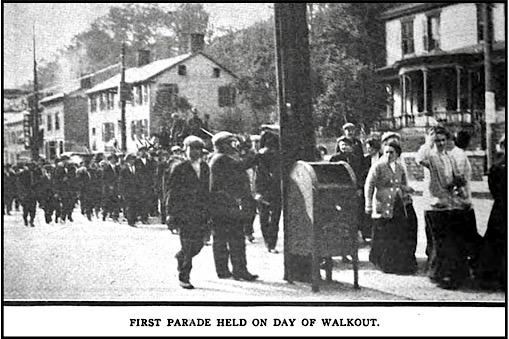
 —————
—————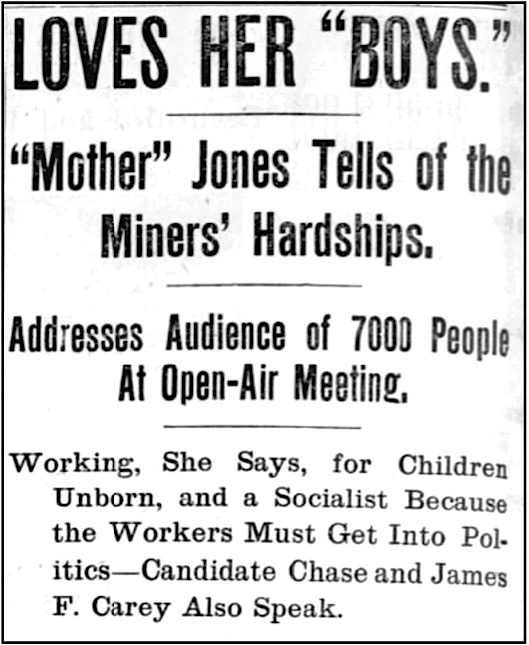
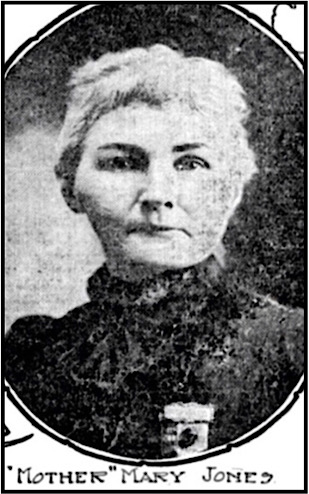
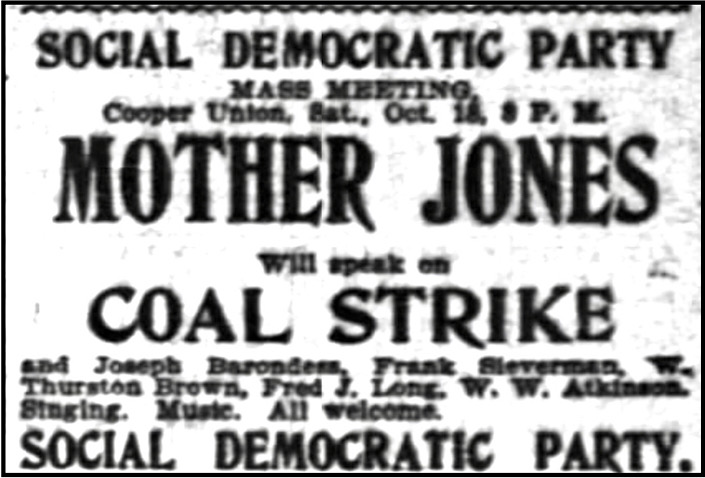
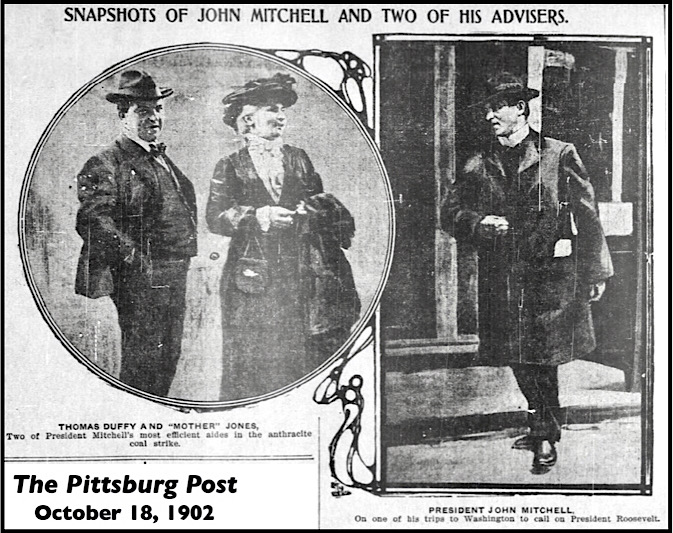
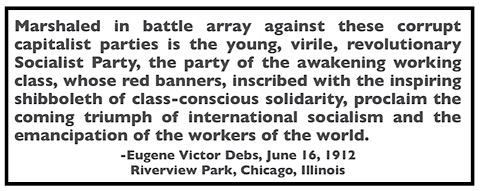 —————
—————